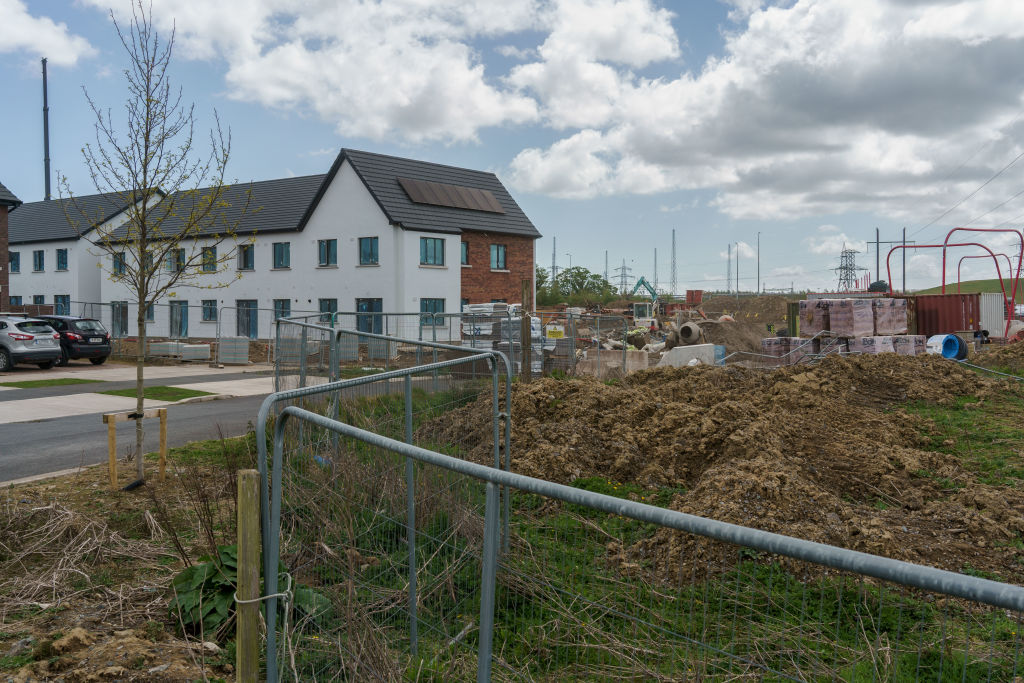Housing will be a key focus for the next Government, with a pledge made for 300,000 homes to be built by the end of 2030 as well as improved grants and supports for retrofitting.
The incoming coalition of Fianna Fáil and Fine Gael, supported by the Regional Independent Group, published their 160-page Programme for Government document on Wednesday afternoon.
It says that the coalition has "come together in partnership to form a stable majority to deliver an ambitious programme and five budgets.”
Pledges to improve housing options for the elderly and to continue support for one-off rural housing are outlined alongside a statement that the incoming administration aims to see 300,000 homes built by the end of 2030.
The new programme outlines plans for the coalition to build 12,000 new social homes on average annually, and pledges to speed up conveyancing and probate dealings, setting a target of 8 weeks for the legal profession.
It says it will introduce a new register of land prices and promises to increase the renters tax credit progressively.
Additionally, the next Government will further capitalise the Land Development Agency and strengthen the compulsory purchase powers of the agency.
It also commits to setting up an innovation fund to stimulate the use of modern methods of construction and promote the use of timber in new buildings.
The Help to Buy and First Homes Schemes will also be retained and expanded.
According to the document, the new Government aims to have 12,500 new apprentices annually by 2030 and commits to launching a new starter homes programme across the public, private and approved housing bodies.
Ambitions to boost the Local Authority Home Loan scheme so a separated or divorced person can buy a full mortgage on a home, are also included in the plans alongside promises to tackle vacancy and dereliction.
Additional planning staff "to help deliver homes faster" are expected to be recruited by the new Government and assurances that the Planning and Environment court will be sufficiently resourced to "swiftly deal with planning litigation" have been added to the programme.
It adds it will enact a new Compulsory Purchase Order Bill with strengthened powers to activate under-utilised land for home building.
Execution of the programme will require local authorities to facilitate a pre-planning meeting for every new significant residential, community and infrastructural development.
It says it will create an updated audit of zoned, un-zoned and serviced land.
Amongst the other housing plans over the next five years, the Programme for Government promises a register of rental price to protect tenants and landlords from abusive practices and will "continue to review the effectiveness of rent pressure zones".
It adds it will enhance the enforcement powers of the Residential Tenancies Board.
The draft Programme for Government also includes a commitment to revise and improve the provisions of grants and financial supports for homeowners who wish to invest in retrofitting their homes, enhancing their energy efficiency, and reduce their energy costs.
There is a specific commitment also to ensure that any such grants and schemes are made accessible to older people in communities around the country.
They have also pledged to ramp up the delivery of more B2 equivalent home energy upgrades or retrofits, each year up to 2030, with a particular focus on low-income households.
Measures to support joint retrofitting projects by neighbours are also to be supported while a mechanism to enable private homes in social housing estates to opt into retrofitting projects at an adjusted cost will be developed.
The new government will also promote the €500 million Low Interest Home Energy Upgrade Loan Scheme offering low interest loans of between €5,000 and €75,000 for retrofitting and energy upgrades.
The draft programme promises to ensure "community gain" arrangements are put into operation when renewable energy projects, such as wind or solar farms, are built in a local area.
It specifically says consideration will be given to ensuring that electricity is made permanently cheaper for the community as a possible option in such scheme arrangements.
It also promises to facilitate employment opportunities in constructing, maintaining, and servicing renewable infrastructure, and integrating local businesses into the supply chain.
There is also a commitment to simplify market access for community-owned solar and wind projects by promoting of the Small-Scale Renewable Electricity Support Scheme
The document also says consideration is to be given to allowing owners of older houses currently using oil boilers for central heating to switch to using sustainable biofuels instead.
This would be to reduce their greenhouse gas emissions only where deep retrofits or energy upgrading is not possible in the short-term.
Follow MyHome on WhatsApp for all the latest property news and advice.






